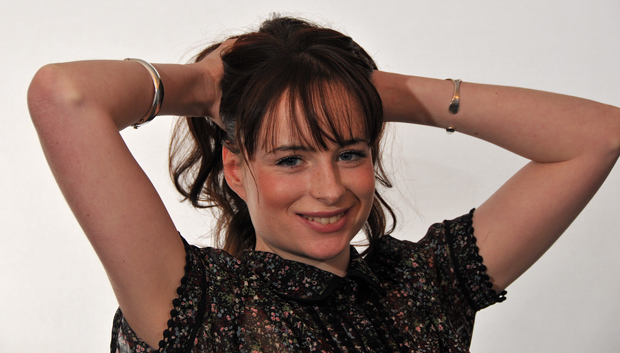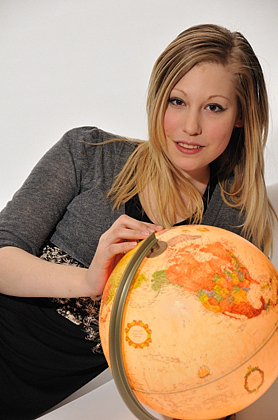|
|
|
On a New Photographers 2nd day |
Each year, at least once, we stop and look at what projects we could run over the following year, what new exciting fields we want to explore and how this will add to our existing knowledge. We do this a few weeks before the annual Focus on Imaging show, as having decided what we are looking to do, and having an idea of what new items we may be looking for, we can do some research and go along to the show, specifically looking at some items, as well as looking out for other new developments. As the show has many offers on, it may be that some of the new items can be obtained at a discount. Its also nice to check out things first hand, especially if we are planning to order it from a mail order supplier.
We have several articles this week covering the
idea of an annual project, something that you can get into and complete in a
year, building new skills, and exploring exciting new areas.
A Project
For This Year
![]() looks at both why and how to go about a
year project, and
Possible Year Projects
looks at both why and how to go about a
year project, and
Possible Year Projects
![]() looks at a wide range of topics and suggests other places, within this system
principally, that you can find out more on each. The article
Area Project -
Lincolnshire
looks at a wide range of topics and suggests other places, within this system
principally, that you can find out more on each. The article
Area Project -
Lincolnshire
![]() looks at how to research and plan a
project based upon an area, in this case the county of Lincolnshire, and this has a range of other information connected
in the form of lists and location guides adding to what we had for this area
before.
looks at how to research and plan a
project based upon an area, in this case the county of Lincolnshire, and this has a range of other information connected
in the form of lists and location guides adding to what we had for this area
before.
While projects can be specific to a topic, some may want to develop other techniques. In our case, over the coming year, we have both projects that are based on topic areas, including three books, but also some that are connected with completely new ideas or areas.
| Let me give you an insight into one of our
new projects, for Camera Images.
The development of the nearest thing to a flight
simulator to teach photographers studio photography and lighting. This
year with the depression, and training bookings down, we have the time to
develop some new courses, and have a range in development currently on
studio work, portraiture and working with models, some of which you will
hear about in a few weeks, when we look here at studio photography in detail,
at the same time adding a new section on this.
Some of the work we do is product, food and flower photography, but we also have a lot of interest in portraiture and model photography. Currently we have theoretical and demonstrations, then on some courses bring in models for a practical session. To make it easier to understand lighting, we have 5 Girlequins (mannequins), these art works are life size models in set poses, with wigs and dressed. They are a cross between what you would put a dress on in a shop window and something you might see in a wax works. We have two standing, one seated, one kneeling and one laying down. With these and a computer linked to a camera, plus different lighting and backgrounds, we can simulate under very controlled conditions the effects of lighting for portraiture and model photography, making adjustments and seeing results immediately. We will also be able to better demonstrate depth of field, colour filters in lighting and a number of other aspects with the same system. We are then planning to add a radio link to the camera allowing the nearest thing to a dual control flight simulator to teach photographers. Although this sounds complex from the users position it is not, its easy to use, see the results and understand why you get specific |
|
effects, in both flash and fixed lighting, demystifying an area that many photographers have perhaps avoided or had some difficulty in picking up fast. We will of course still be using live models as well for some courses, but as more will have been seen and experienced before, photographers will be able to make more of the experience session when a model is used. For this we need the Girlequins, a radio connection and a few other items, plus at the same time we are adding constant cold lighting, running near to daylight to the two types of flash and tungsten lighting we can currently use.
|
As we can undress these
Girlequins they will also be able to be used for a new medical photography
course Camera Images is also developing for GP's and others who work within general
practices. There is quite a bit more to the medical course project. While not suggesting that you rush out and buy a pile of bodies, you will be able to see the idea of projects being put into practice, it will allow us to demonstrate, teach and we expect make new discoveries ourselves. It will make it easier for many to understand as they will be able to see the effects, and for some perhaps nervous of models, to make that leap to a position of confidence. Similarly on the medical photography front it will make life far easier using models that stay still for a long time, while we look at results, and where there is no pressure on allowing them to get dressed again. |
|
Perhaps you would like to consider a project that you could take on and enjoy, and maybe the idea of a year project could help you to move rapidly forward, learning, gaining experience and enjoying your photography.
Burghley House, Stamford, Lincs
![]()
![]()
![]()
![]()
Grimsthorpe Castle, Park & Gardens, Bourne, Lincolnshire
![]()
![]()
![]()
![]()
Julian's Bower, Alkborough, Lincs
![]()
![]()
![]()
Butterfly & Wildlife Park,
Spalding, Lincs
![]()
![]()
![]()
![]()
![]()
Natureland Seal Sanctuary, Skegness, Lincs
![]()
![]()
![]()
![]()
![]()
Tattershall Castle, Tattershall, Lincs
![]()
![]()
![]()

